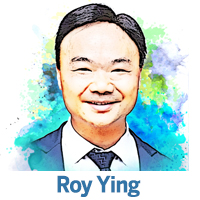In the Policy Address, the chief executive mentioned the word “AI” 64 times, with supporting policies and resources flowing into AI-related sectors. But why does this matter to the average resident? Imagine shorter hospital waiting times as AI optimizes healthcare scheduling, more efficient public services that reduce the hassle of bureaucracy, or smarter education tools that help students and workers learn faster and better. These are not futuristic dreams but tangible benefits that every Hong Kong resident could experience. To ensure these advantages are realized, the government’s strategy focuses on three critical pillars: investment, regulation, and education.
 Investment
Investment
Leading by example, the government’s ambitious plan to embed AI across all departments aligns seamlessly with the State Council’s “AI+” blueprint, promising substantial returns for Hong Kong. By leveraging AI to enhance administrative efficiency and accuracy, this initiative will streamline public services, making them faster and more accessible for residents. For instance, AI-powered systems could simplify processes like applying for public housing or renewing licenses, saving time and reducing frustration for individuals.
The true potential of this initiative, however, lies in its ability to drive economic transformation by fostering broader AI adoption in the private sector. Public sector leadership in AI implementation can act as a catalyst, shifting the government’s role from a passive regulator to an active facilitator of innovation. This ripple effect will extend well beyond businesses, as AI-driven industries create high-value jobs and opportunities. For residents, this means not only the promise of better careers but also the potential for improved goods and services, such as AI-enhanced logistics that make everyday items more affordable.
Imagine shorter hospital waiting times as AI optimizes healthcare scheduling, more efficient public services that reduce the hassle of bureaucracy, or smarter education tools that help students and workers learn faster and better. These are not futuristic dreams but tangible benefits that every Hong Kong resident could experience. To ensure these advantages are realized, the government’s strategy focuses on three critical pillars: investment, regulation, and education
Regulatory framework
Hong Kong’s context-based regulatory approach to AI, which tailors guidelines to sectors like finance and communications, ensures the city can adapt to the diverse needs of its industries without stifling innovation. Yet this approach also directly benefits residents by safeguarding their rights in an increasingly AI-driven world. For example, regulations can ensure that personal data collected by AI systems is securely stored and used ethically, protecting individuals from breaches or misuse. Similarly, sector-specific guidelines can prevent algorithmic biases in critical areas such as hiring, loan approvals, or access to public resources, ensuring fairness and accountability.
The chief executive’s proposal to establish an interdepartmental working group to review and propose legislation is a commendable step forward. However, given the rapid pace of AI development, interim measures are essential. By involving the private sector in adopting “Ethics on AI” principles based on the Digital Policy Office’s framework, Hong Kong can maintain ethical standards while formal legislation is still being developed. This collaborative approach not only fosters innovation but also reinforces public trust by prioritizing privacy, fairness, and transparency.
Education and learning
The government’s plan to integrate AI literacy into the core school curriculum and provide teacher training is a crucial investment in Hong Kong’s future. These initiatives will not only prepare young people to navigate an AI-driven world but also empower them to actively shape its development. By equipping students with foundational knowledge of AI, the government ensures that the next generation is ready to seize emerging opportunities and contribute to Hong Kong’s position as a global innovation hub.
Higher education institutions must also evolve to meet the demands of a rapidly changing job market. Incorporating industry-relevant certifications, hands-on AI tools, and real-world applications into degree programs will enable graduates to leave the university with cutting-edge skills that align with employer expectations. This shift is essential to bridge the gap between academic training and the technological realities of industry.
For the existing workforce, the government’s announcement of workforce upskilling and retraining as a priority — particularly in the context of AI and emerging technologies — is a step in the right direction. However, many adult learners face significant barriers, including limited time, language challenges, and outdated skills. To address these challenges effectively, the government and private sector should collaborate to design accessible and inclusive AI training programs. Delivering these programs in Cantonese and tailoring them to the specific needs of various sectors will maximize their impact. Flexible formats, such as online and modular courses, can further ensure that working adults have the opportunity to participate.
To remain competitive in the global race for AI leadership, higher education institutions and retraining programs must act swiftly to adapt to rapid technological advancements. Delays in these efforts risk leaving Hong Kong’s workforce ill-equipped for the challenges and opportunities of an AI-driven economy.
While AI investment, regulation, and education lay the foundation for Hong Kong’s success in the next industrial revolution, it is crucial to communicate to the average person why AI development matters, clearly and in relatable terms. For example, these efforts can enable intelligent healthcare systems that predict and prevent illnesses, reducing the burden on families and improving quality of life. Similarly, an AI-driven education system can prepare students and workers with future-ready skills tailored to the evolving needs of employers. The Policy Address is a step in the right direction, but focused and sustained action by everyone will be necessary to ensure these benefits are realized.
The author is a senior lecturer in the Department of Marketing, the Hang Seng University of Hong Kong.
The views do not necessarily reflect those of China Daily.


